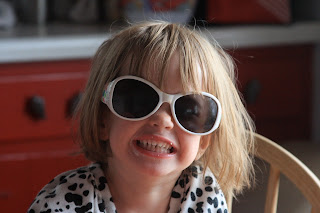These days, when I see a cardboard box, no matter how flattened it is, squashed between fifteen other boxes in a garbage bin covered in dirty snow, I see potential.
When we afford children the freedom to do whatever they choose with ordinary open-ended materials, one of the messages we send is: You have potential and the things around you have potential. There is possibility beyond what we can currently see or touch.
In her book The Having of Wonderful Ideas, Eleanor Duckworth writes about the process of teaching and learning, and makes the case that when we allow children the freedom to have their own wonderful ideas (to make meaningful connections based on their own understandings) we support intellectual exploration to the fullest capacity. She writes, “Having confidence in one’s ideas does not mean ‘I know my ideas are right’; it means ‘I am willing to try out my ideas.’”
How useful this is in life, how empowering it is to possess the willingness to try out ideas to play through something we are curious about. How satisfying it can be to recognise the potential in the everyday “stuff”, the very ordinary world around us. Unfortunately, opportunities for children to engage in this process are few and far between.
My own two daughters are almost 7 (shocking!) and 3.5 years old. They are both at school and I am buried at the library, working. But, when I pick them up, in the midst of dinner, homework, baths, and their passionate arguments about personal space and property, I will try to hold onto this idea of the potential. Not the vision of the future, of what my girls will become or what they should be learning now for the sake of tomorrow, but of the potential through play that is all around us in the moment – today.
When my girls covet other people’s recycling, when they pull me by the arm across the street so they can show me the amazing treasure they’ve spotted in someone else’s bin, I think I understand real joy. I understand that they see potential, too.
There must be six hundred different words that we could associate with play. For each post, I will choose one.

This is the first in a series of short written pieces from Anna on play. To find out more about our work, please visit our website and like us on Facebook.
By Anna